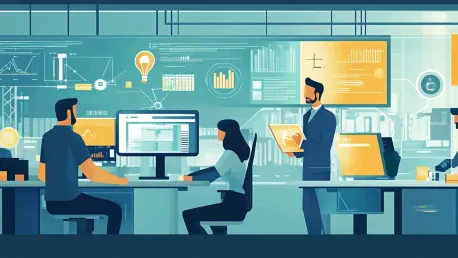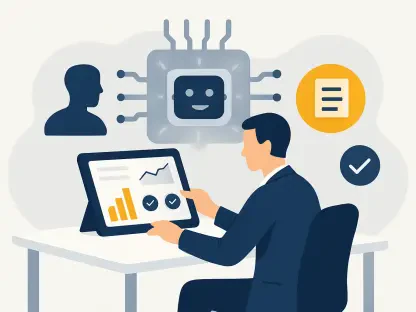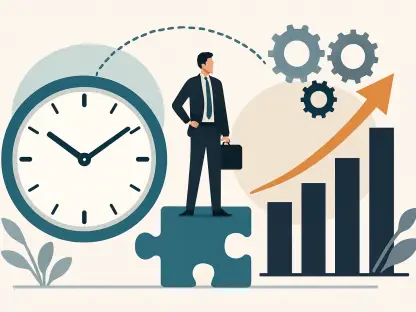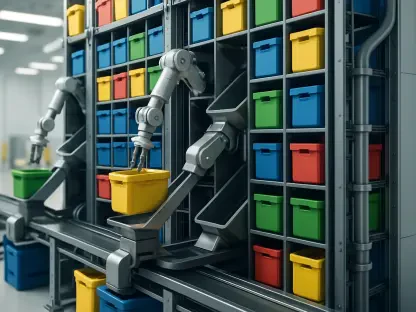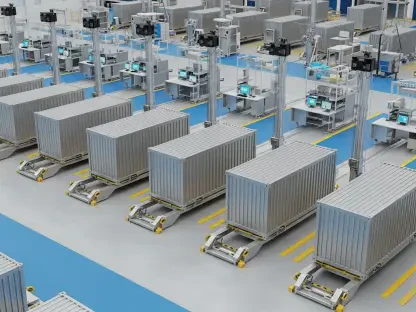In the accelerating digital landscape, artificial intelligence (AI) is revolutionizing the world of work. Human Resources (HR) is pivotal in mitigating AI disruptions while harnessing its full potential to create an adaptable workforce, ensuring that organizations remain resilient in an ever-evolving environment. As the digital age transitions into an AI era, adapting to this technological shift is critical for sustaining innovation and competitive advantage.
The Role of HR in the AI Era
AI’s transformative influence on both technical and non-technical roles underscores the necessity of reskilling. As automation increasingly handles routine and manual tasks, HR must emphasize the development of pivotal ‘soft’ skills to maintain market competitiveness. Creativity, emotional intelligence, empathy, and unstructured problem-solving have become essential. These attributes are unique to humans and will play a significant role in complementing AI capabilities in the workplace.
Charlotte Chiew, Vice President of People and Culture at NCS, advocates for balancing technical competencies with these human-centric traits, ensuring that organizations are prepared for a hybrid AI-human workforce. Chiew emphasizes the importance of not only equipping employees with AI-related skills but also nurturing the distinct qualities that machines cannot replicate. By fostering a holistic development approach, HR can create a resilient and adaptive workforce that thrives in a technologically advanced landscape.
AI-Driven Job Creation
AI is not merely about automating jobs; it is also about generating new opportunities. Emerging specializations such as agentic AI, robotics, video intelligence, and AI ethics demonstrate this shift and create demand for specific expertise. AI is anticipated to spawn new job opportunities across various domains, which necessitates tailored training programs to equip employees with the relevant skills.
At NCS, this evolution is exemplified through on-the-job training in these nascent disciplines. Employees are provided with critical AI-related skills, preparing them for the forthcoming job market. Engineering roles, including software, cloud, and data engineering, will particularly benefit from these newly acquired competencies. The introduction of advanced AI specializations also aligns with the broader industry trend of integrating AI into various operational aspects, ensuring that the workforce remains adaptable and capable of handling future challenges.
AI Literacy and Continuous Learning
Recognizing AI literacy as fundamental, NCS introduced an AI Foundational Course for its 13,000 employees to seamlessly integrate AI in daily tasks. This initiative builds a robust understanding of AI, making it a crucial skill across all sectors. The foundational course ensures that employees develop a comprehensive grasp of AI’s capabilities and how they can be applied to enhance productivity and innovation.
Moreover, NCS fosters a culture of continuous learning through leadership and professional skills training. Collaborative work practices are promoted both internally and in partnership with Institutes of Higher Learning. This holistic approach to workforce development aims to cultivate a learning environment where skills are continuously updated, and employees stay ahead of technological advancements. By embedding AI literacy into the core training programs, organizations can better prepare their workforce for the constantly evolving AI landscape.
Practical Application of Generative AI
Generative AI (gen AI) is already enhancing daily operations at NCS, demonstrating its practical value. Software engineers utilize gen AI for coding and testing, streamlining the development process. HR teams leverage it for market research, report generation, and administrative duties, significantly improving efficiency. Chiew herself employs gen AI for accessing strategic insights, developing presentations, and managing managerial tasks, showcasing the versatility of AI applications.
NCS clients are also benefiting from AI-powered solutions. For instance, the Singapore Ministry of Manpower’s Contact Centre has implemented AI-driven transcription and call summarization to enhance workflow efficiency. Incorporating gen AI tools into reskilling initiatives further elevates training quality and expedites the creation of training materials. This practical application of AI demonstrates how it can streamline operations and support HR functions, ultimately contributing to workforce resilience and adaptability.
Personalized Training with AI
NCS’s internal training arm, NCS Dojo, exemplifies how AI can personalize training programs. By employing AI avatars, the organization produces consistent, self-paced learning videos, reducing production time and ensuring uniformity in training content. Additionally, AI is used to identify skill gaps among employees, enabling a more targeted approach to training and development.
AI also facilitates the matching of mentors with mentees, ensuring that employees receive personalized guidance and support. However, Chiew emphasizes that AI should complement, not replace, human mentorship. By integrating AI-driven learning with practical experience, organizations can align career development with organizational goals effectively. This approach highlights the significance of maintaining human elements in training while leveraging AI to enhance the learning experience.
Prioritizing Soft Skills and Continuous Learning
In today’s rapidly advancing digital landscape, artificial intelligence (AI) is fundamentally transforming the way we work. The realm of Human Resources (HR) plays a crucial role in managing the disruptions brought by AI while also leveraging its capabilities to build a workforce that’s flexible and ready to adapt. This ensures organizations stay robust and are able to thrive within a constantly changing environment. As we move from the digital age into an era dominated by AI, it becomes essential for businesses to adjust to these technological shifts. This adaptation is not merely beneficial but imperative for maintaining continued innovation and a competitive edge in the market. Moreover, HR strategies must evolve to integrate AI, balancing technology with the human element to optimize outcomes. Therefore, comprehending and embracing AI’s impact on the workforce can lead to enhanced productivity and strategic growth, positioning companies to succeed in the future’s AI-driven world.
